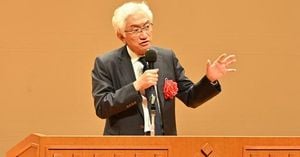Argentina’s victory at the 2022 FIFA World Cup represented not just another trophy for the proud South American nation, but also the culmination of years of yearning, dreams, and uncompromising skill. The final match against France on December 18, 2022, at the Lusail Stadium was nothing short of iconic, ending 4-2 on penalties after finishing 3-3 at the end of extra time. This extraordinary game was one for the ages, showcasing dynamic plays, unshakeable determination, and stellar individual performances, especially from Lionel Messi and Kylian Mbappé, whose presence defined the tournament.
For Argentina, the World Cup victory was the third title, following earlier triumphs in 1978 and 1986. It was also unique as it was achieved under the guidance of coach Lionel Scaloni, who initially faced skepticism when appointed to head the squad. Nevertheless, he succeeded by creating a harmonious blend of seasoned professionals and young talents, leading them through challenges posing as defining moments.
Throughout the tournament, Argentina displayed remarkable resilience. From the surprising defeat to Saudi Arabia in their opening match, to their march through the knockout stages, they demonstrated growth and unity. Each match was marked by dramatic narratives — the players' unwavering spirit, the emotional highs of victories, and the agonizing lows of near-defeat.
The defining moment for Argentina came when they faced the Netherlands in the quarter-finals. After taking a 2-0 lead, the team faltered as the Dutch equalized and forced the game to penalties. Argentina emerged victorious, capturing the emotional rollercoaster of the match, which elevated their confidence heading to the semi-finals.
Another incredibly charged match followed against Croatia, which ended 3-0, with Messi orchestrative on the pitch, showcasing his decisive playmaking skills, including assists and well-timed runs. The victory over Croatia brought the players one step closer to their dream, rejuvenated their spirits, and set the stage for the ultimate clash with France.
The final was not just about scoring goals; it showcased the relentless battle of two footballing powerhouses. Messi opened the scoring with a penalty, igniting exuberant celebrations among the Argentine fans who believed. But soon enough, the fearless French team responded remarkably, with Mbappé leveling the score not once, but twice — the second goal coming just as Argentina thought they had the win within grasp.
With everything level at 3-3 at the end of extra time, the stage was set for penalties, and the tension was palpable. Argentina’s players took their turns with the calm intensity they had shown throughout the tournament. The sudden-death drama unfolded as Messi, Paulo Dybala, and others slotted home their penalties, allowing goalkeeper Emiliano Martínez to step up and make key saves, sealing their fate as champions.
This match not only highlighted individual brilliance but also celebrated Argentina’s collective spirit. The players wore their passion on their sleeves, igniting joy across the nation and reminding fans of their rich footballing legacy.
Much discussion ensued after the final match, particularly revolving around the contributions of key players. Lionel Messi underscored his status as one of football's greatest with his stellar performances, providing importance not only through goals but as the team's catalyst. His leadership was complemented by his tactical intelligence, bringing forgiveness to the forefront and steering team morale through stretching challenges.
Fans around the world were captivated by the final's unpredictability and high stakes, fostering significant interest and future discussions about the quality of football on display. The match reaffirmed Argentina’s place not only as world champions but also as torchbearers of football artistry.
The celebrations within Argentina sparked eruptions of joy, pride, and camaraderie. Streets filled with jubilant supporters, immense pride traced every cheer, and Argentine flags swayed high with pride as cities united to honor their champions.
Beyond the immediate euphoria of victory, Argentina's triumph carried significant emotional weight. Following years of heartache, hopes of glory culminated not only for the players but also for fans longing for redemption after previous disappointments.
Such was the mark of the team's unity, displaying perseverance both on and off the pitch. Moments like Messi embracing his teammates, the infectious smiles from young players, and the emotional reactions from fans illuminated the camaraderie and depth of connection built over years of striving for excellence.
Messi’s glittering career found another peak as he lifted the trophy, his reflection glowing with emotion. For many, this victory was the quintessential fulfillment of dreams — particularly for Messi, whose pursuit of greatness often contrasted sharply against the pressures of expectation.
Overall, Argentina's assimilation of talent, unwavering dedication, and collective energy led the team to their momentous World Cup title. The intoxicant joy palpable among their fans encapsulated the magic of sport, reminding everyone why they put their hearts on the line, match after match, season after season. The victory set the stage for future explorations of football's capabilities, unity, and passion, ensuring Argentina's legacy will echo through the annals of sports history.



